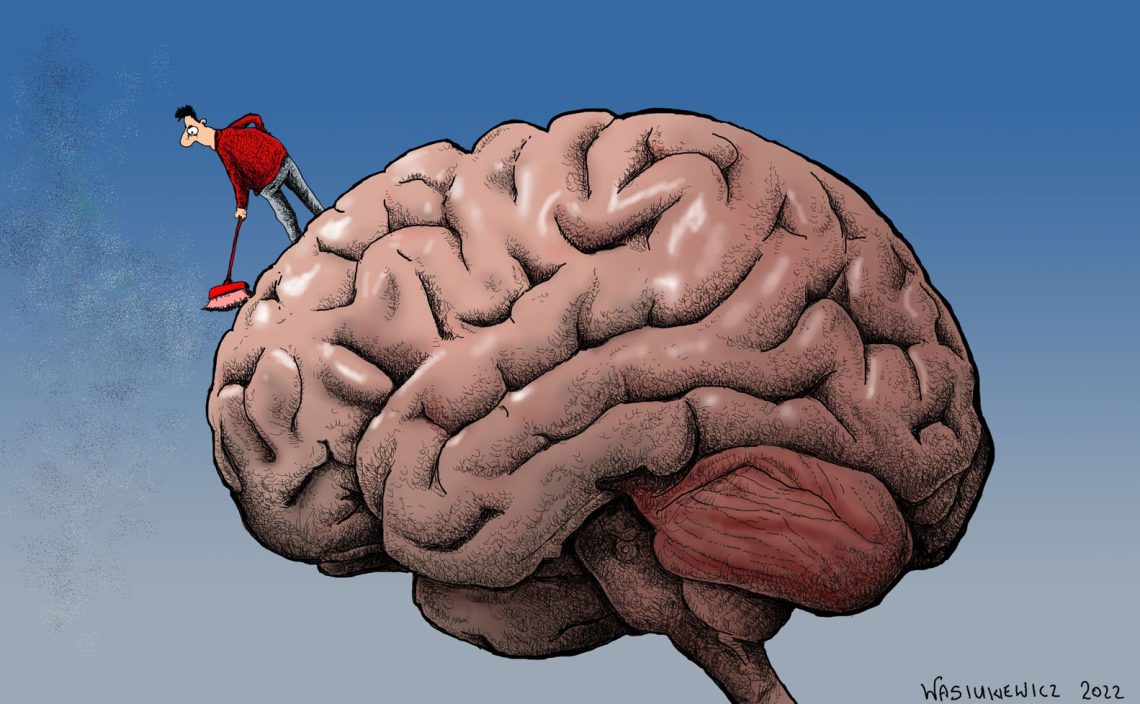A spirit of hope and optimism for 2022
Governments, the media and now even some scientific circles are pushing singular policy solutions as the only option, but sound judgment offers hope for grasping new opportunities.

In the Bible, the Apostle Paul pens a beautiful phrase in the Second Epistle to Timothy: “For God has not given us a spirit of fear, but of power and of love and of a sound mind.”
We seem to be living in a time of panic, fear and hopelessness. The sense of alarm – as increasingly drummed up around climate issues – undermines hope and sound judgment. Mankind has always lived through crises. Uncertainty and change are the norm. Stability never lasts.
Good leadership therefore requires analyzing situations, formulating scenarios and alternatives, and communicating decisions clearly. The French President Adolphe Thiers (1871-1873) coined the phrase “gouverner c’est prevoir” – to govern is to foresee. Attentive and confident governance, feeling the personal and collective responsibility for the “res publica,” coupled with a strong sense of accountability, follow from this point of view.
Such responsibility does not only apply to politics and administration, but also to media and science. This style of leadership eschews stubbornly forcing through a single option or insisting that there is only one possible solution. It allows societies to adapt and attain some stability, even in times of momentous change.
Envisioning alternatives
For years, mainly governments, but also many businesses, lacked foresight when it came to the environment, pollution and waste. Some claim that the cause of this oversight was greed, but that explanation is too superficial. Business, and especially family businesses, realized long ago that sustainability is necessary. Where unsustainability is most pernicious is in enormous state programs, such as those China tends to implement. These have always been, and continue to be, disastrous. But Beijing is far from the only culprit. For example, the German government’s policy of shutting down nuclear energy led to an increased use of coal and gas in electricity generation.
In well-functioning systems where accountability is strong – chiefly democracies – the leadership will apply foresight and common sense, encourage debate and try to find the best solutions – but it will also always envisage alternatives. In autocratic systems, primarily those that put survival of the regime ahead of the common good, fear and panic are the instruments used. Then, the regime pretends to provide a solution and protect the people. These governments also find it useful to scare their populations with the possibility of being attacked by a dangerous enemy.
Apocalypse now?
Today the media, politicians, activists, NGOs, some scientists and several supranational organizations are painting apocalyptic scenarios. Whether it is Covid, climate change, populism, or the advance of authoritarian regimes, these figures spread fear and panic, and insist on single solutions without considering the consequences. Debates are limited and people with differing opinions are marginalized.
Robust debate among disparate views is always necessary. Unfortunately, Western governments have also allowed themselves to reign based on fear – an authoritarian characteristic.
It is crucial to address the problems mentioned above – and those who highlight them deserve credit. However, the way they are used to instill fear and push through singular policy solutions is neither productive nor worthy of free democratic societies. One cannot rule responsibly through fear, panic and marginalizing divergent opinions.
Science also seems to be turning in this direction. In today’s debates, “believe the science” is a frequent refrain, but scientific progress tends to occur as much based on doubt as on belief.
Grasping opportunities
This is where we stand now, but we must be hopeful and overcome our petty fears. Covid has reminded us that epidemics can occur and wreak havoc. We now know the significance of prudently preparing for disasters (which public institutions have long neglected) and the crucial role of personal responsibility in protecting against them. The latter is especially important when it comes to health issues.
The world is now working to fight pollution and waste. We can hope to achieve a cleaner planet. Although climate change will always be a factor, we have begun to acknowledge its effects. Doing so will allow us not only to adapt, but also grasp the resulting opportunities. While we agree that harmful emissions, pollution and waste – including plastic (a huge problem in the Pacific Ocean) – should be minimized, not all aspects of climate change are bad. It will be necessary to keep an attentive, sound mind.
New technologies, including in the area of biotech, are opening up tremendous new possibilities. The medicine, health, communication, energy and logistics sectors are taking huge steps forward. Science is making rapid advancements. Over recent decades, life expectancy has increased dramatically. New findings help prevent chronic diseases. In energy, new technologies are increasing efficiency. Even the technological competition now occurring between the United States and China – frequently seen as a threat – has the advantage that both sides must improve continuously.
It is as old as mankind that we need a crisis to improve and renew systems and streamline institutions. So we should not fall into the trap of limiting freedom, development and open debate to achieve a short-term, fear-driven illusion of stability.
Following the words of the Apostle Paul – not only a call to Christians and believers – we can look with hope to the future. Happy New Year 2022.
